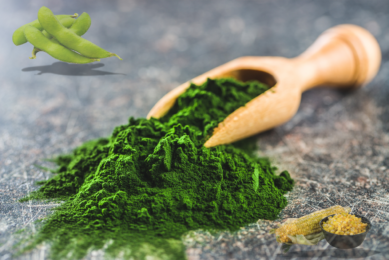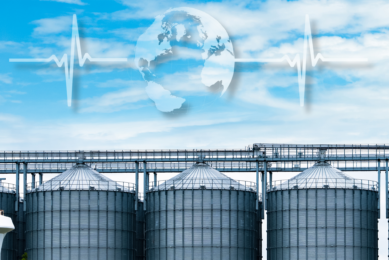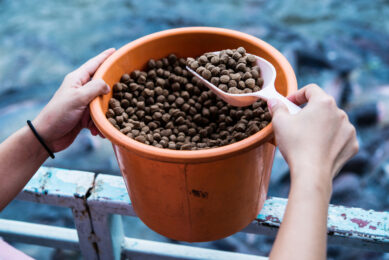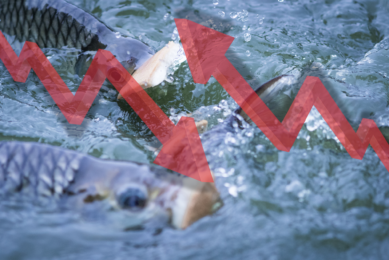New Protix plant: A transition in insect farming
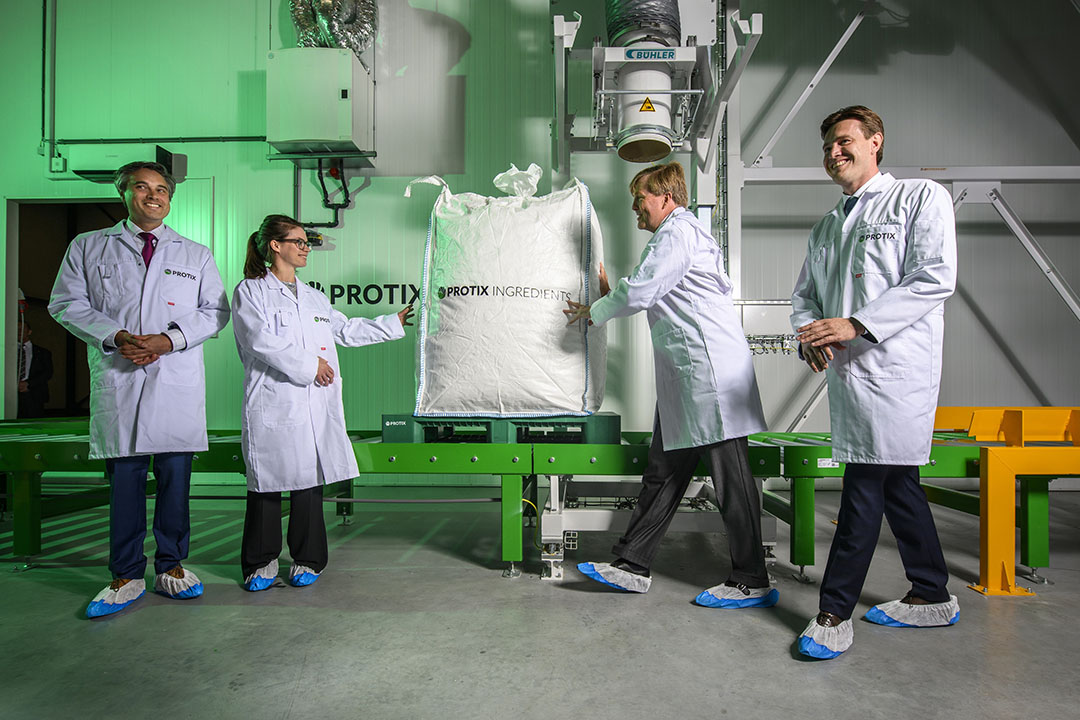
Dutch insect breeder Protix has officially opened its new production facility in Bergen op Zoom, the Netherlands. It marks not only a transition for the company, but also for the global insect industry.
The 14,000 square metre facility was opened by Dutch King Willem-Alexander. The Dutch Royal was given a tour around the new factory and was able to take a look at all aspects of the cultivation process: from egg to end product. The cultivation process takes place in a controlled environment and is highly automated with sensor and data systems, robots and climate control. He officially completed the opening by handing over the first load of insect protein to Skretting, the fish feed division of Nutreco. The new plant increases the production capacity for Protix tenfold. The new plant is currently in the start-up phase, and will be scaled up in the coming months. The total production volumes have not been disclosed by Protix.
Circular agriculture at its best
The King was accompanied by Dutch Minister Carola Schouten, Minister of Agriculture, Nature and Food Quality. According to Minister Schouten, the opening of the new factory is a milestone and a great example of circular agriculture. She also hopes that European legislation will make it possible soon to use the insect protein in the feed of chickens and pigs as well. At the moment it is only possible in the European Union to include insect protein in fish feed. Live insects and insect oil are allowed for all farm animals. “Operating locally is very important for a circular agriculture. By using insect protein, produced locally, the pressure on the environment, water use and greenhouse gas emissions is reduced and the amounts of soy and fish meal that we must import as the Netherlands for example can be limited. The next step could be to grow the insects on manure. Then you talk about circularity at its best,” said Minister Schouten.
A transition from prototype to a mature and commercial sector
Protix produces insects for sustainable proteins by using plant waste (clean waste from the food sector) as feed for insects. The proteins and other nutrients of insects are very nutritious and can be fed to animals, especially fish and chickens. In this way, non-sustainable sources, such as fishmeal and soy, can be replaced by a sustainable alternative. The new plant is seen as the most advanced insect farm in the world. The equipment and processes were jointly developed with Swiss machine builder Bühler. Minister Schouten applauded the founders of Protix, Tarique Arsiwalla and Kees Aarts for their entrepreneurship. Protix was founded in 2009 and has developed all the techniques for breeding the larvae of the black soldier fly on a large scale itself. A lot of things have been trial and error.
“The new plant is a turning point for both the Protix company, as well as the worldwide insect sector, and its customers. It is a transition from prototype to a mature and commercial sector. The volumes that are now coming onto the market, of controlled quality and with a guarantee for customers, is a true milestone. In the animal feed sector people are open to new protein sources, but it is important that as an insect company you can prove that quality and delivery are guaranteed, and we can do that,” said Mr Arsiwalla. Mr Aarts added: “We are very honoured to have welcomed King Willem-Alexander and our Minister of Agriculture in honour of the opening of the largest insect farm in the world and our 10-year anniversary. This is of course an important milestone for Protix. The opening of our new facility signifies a real transformation. We will move our products and technology across borders and build our leadership in this industry around the world.”

The trigger that the industry was waiting for
During the opening session, entrepreneurs and CEOs from the agri-food industry joined to talk about the use if insects in animal feed. The programme was moderated by Peter Bakker, President and CEO of the World Business Council for Sustainable Development (WBCSD). Emphasis was laid on the transition of the food system to a future in which people can continue to enjoy good food with an ever-lower impact on the environment. Ian Roberts, Chief Technology Officer (CTO) at Bühler was part of the panel and addressed that technology is not the main obstacle to further grow the production of insect products for animal feed. “The new Protix plant is an example of a system that is fully optimised. To fully optimise the whole value chain of food production, transparency and use of data is needed. Technology is not the obstacle to accomplish this, we need willingness to collaborate on this together.” Mr Roberts also said that having new protein sources is critically important. “Being the first to have such an insect facility on this scale it the hardest thing to do. This Protix plant is the trigger that the industry has been waiting for.” Jose Villalon, Corporate Sustainability Director at Nutreco emphasised in the panel discussion that we are currently consuming 1.5 planets and that this means that in the future, we have to double the food production, while cutting the environmental impact in half. The use of insect protein fits in restoring the broken food system. “As Nutreco we applaud a broad range of ingredients for use in animal diets. It is risky to only have a few ones to choose from.”







